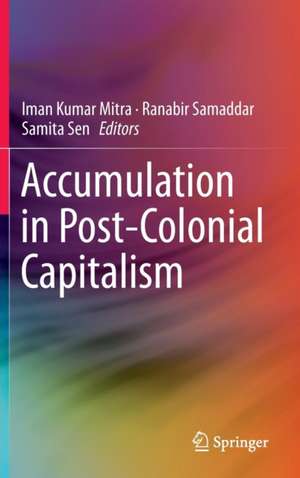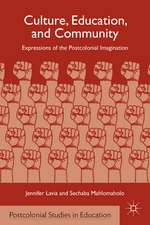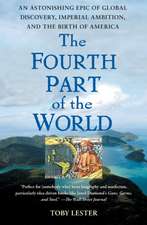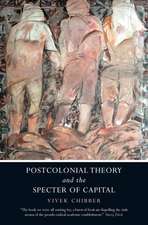Accumulation in Post-Colonial Capitalism
Editat de Iman Kumar Mitra, Ranabir Samaddar, Samita Senen Limba Engleză Hardback – 9 aug 2016
By challenging the established dualities between citizenship-based civil society and welfare-based political society, exploring critically the question of colonial and postcolonial difference, and foregrounding the material processes of accumulation against the culturalism of postcolonial studies, this volume redefines postcolonial studies in South Asia and beyond. It is invaluable reading for students and scholars of South Asian studies, sociology, cultural and critical anthropology, critical and praxis studies, and political science.
| Toate formatele și edițiile | Preț | Express |
|---|---|---|
| Paperback (1) | 386.81 lei 6-8 săpt. | |
| Springer Nature Singapore – 15 iun 2018 | 386.81 lei 6-8 săpt. | |
| Hardback (1) | 394.12 lei 6-8 săpt. | |
| Springer Nature Singapore – 9 aug 2016 | 394.12 lei 6-8 săpt. |
Preț: 394.12 lei
Nou
Puncte Express: 591
Preț estimativ în valută:
75.41€ • 82.18$ • 63.55£
75.41€ • 82.18$ • 63.55£
Carte tipărită la comandă
Livrare economică 23 aprilie-07 mai
Preluare comenzi: 021 569.72.76
Specificații
ISBN-13: 9789811010361
ISBN-10: 9811010366
Pagini: 393
Ilustrații: XI, 260 p.
Dimensiuni: 155 x 235 x 16 mm
Greutate: 0.56 kg
Ediția:1st ed. 2017
Editura: Springer Nature Singapore
Colecția Springer
Locul publicării:Singapore, Singapore
ISBN-10: 9811010366
Pagini: 393
Ilustrații: XI, 260 p.
Dimensiuni: 155 x 235 x 16 mm
Greutate: 0.56 kg
Ediția:1st ed. 2017
Editura: Springer Nature Singapore
Colecția Springer
Locul publicării:Singapore, Singapore
Cuprins
Chapter 1. Introduction: A Post-Colonial Critique of Capital Accumulation Today.- Part I: New Dynamics of Accumulation.- Chapter 2. Flexible Labour and Capital Accumulation in a Post-Colonial Country Byasdeb Dasgupta.- Chapter 3. Law, Statistics, Public Private Partnership and the Emergence of a New Subject Mithilesh Kumar.- Chapter 4. S ecurity and the City: Postcolonial Accumulation, Securitization and Urban Development in Kolkata Ilia Antenucci.- Chapter 5. Accumulation by Possession: The Social Processes of Rent Seeking in Urban Delhi Sushmita Pati.- Chapter 6. Accumulation at Margins: The Case of Khora Colony Shruti Dubey.- Chapter 7. The Politics of Bank Nationalization in India Suhit K. Sen.- Part II: Caste, Gender, Race: Axes of Accumulation.- Chapter 8. Life, Labour, Recycling: A Study of Waste Management Practices in Contemporary Kolkata Debarati Bagchi and Iman Kumar Mitra.- Chapter 9. Ayurveda Tourism: Issues of Development and Gender in Contemporary Kerala Rashmi Gopi.- Chapter 10. Caste and the Frontiers of Post-Colonial Capital Accumulation Ritajyoti Bandyopadhyay and Ranabir Samaddar.- Chapter 11. Governmentalizing NRI Philanthropy in Andhra Pradesh: A Transregional Approach to India’s Development Sanam Roohi.- Chapter 12. The Postcolony and Racy Histories of Accumulation Atig Ghosh.
Notă biografică
Iman Kumar Mitra has studied economics and is a research associate at the Calcutta Research Group. His doctoral dissertation explores the history of dissemination of economic knowledge in colonial Bengal through various pedagogical and institutional networks. His research interests include history of economics, migration, urbanization, and labour issues. He is currently involved in a research project on the interconnectedness between rural-urban migration, urbanization, and social justice in post-liberalization India.
Ranabir Samaddar is Distinguished Chair in Migration and Forced Migration Studies, Calcutta Research Group. He has worked extensively on issues of forced migration, the theory and practices of dialogue, nationalism and post-colonial statehood in South Asia, and new regimes of technological restructuring and labour control. His most recent publication in the form of a co-authored volume on new town and new forms of accumulation Beyond Kolkata: Rajarhat and the Dystopia of Urban Imagination (Routledge, 2013) takes forward urban studies in the context of post-colonial capitalism.
Samita Sen, the first Vice-Chancellor of the Women’s University at Diamond Harbour, West Bengal, teaches at the School of Women’s Studies, Jadavpur University. She has worked extensively on labour and gender issues. Her publication includes Women and Labour in Late Colonial India: The Bengal Jute Industry (Cambridge University Press, 1999) and the co-authored monograph Domestic Days: Women, Work, and Politics in Contemporary Kolkata (Oxford University Press, 2015). She is a member of the Calcutta Research Group.
Ranabir Samaddar is Distinguished Chair in Migration and Forced Migration Studies, Calcutta Research Group. He has worked extensively on issues of forced migration, the theory and practices of dialogue, nationalism and post-colonial statehood in South Asia, and new regimes of technological restructuring and labour control. His most recent publication in the form of a co-authored volume on new town and new forms of accumulation Beyond Kolkata: Rajarhat and the Dystopia of Urban Imagination (Routledge, 2013) takes forward urban studies in the context of post-colonial capitalism.
Samita Sen, the first Vice-Chancellor of the Women’s University at Diamond Harbour, West Bengal, teaches at the School of Women’s Studies, Jadavpur University. She has worked extensively on labour and gender issues. Her publication includes Women and Labour in Late Colonial India: The Bengal Jute Industry (Cambridge University Press, 1999) and the co-authored monograph Domestic Days: Women, Work, and Politics in Contemporary Kolkata (Oxford University Press, 2015). She is a member of the Calcutta Research Group.
Textul de pe ultima copertă
This volume looks at how accumulation in postcolonial capitalism blurs the boundaries of space, institutions, forms, financial regimes, labour processes, and economic segments on one hand, and creates zones and corridors on the other. It draws our attention to the peculiar but structurally necessary coexistence of both primitive and virtual modes of accumulation in the postcolony. From these two major inquiries it develops a new understanding of postcolonial capitalism. The case studies from India and Sri Lanka discuss the production of urban spaces of capital extraction, institutionalization of postcolonial finance capital, gendering of work forms, establishment of new forms of labour, formation of and changes in caste and racial identities and networks, and securitization—and thereby confirm that no study of contemporary capitalism is complete without thoroughly addressing the postcolonial condition.
By challenging the established dualities between citizenship-basedcivil society and welfare-based political society, exploring critically the question of colonial and postcolonial difference, and foregrounding the material processes of accumulation against the culturalism of postcolonial studies, this volume redefines postcolonial studies in South Asia and beyond. It is invaluable reading for students and scholars of South Asian studies, sociology, cultural and critical anthropology, critical and praxis studies, and political science.
By challenging the established dualities between citizenship-basedcivil society and welfare-based political society, exploring critically the question of colonial and postcolonial difference, and foregrounding the material processes of accumulation against the culturalism of postcolonial studies, this volume redefines postcolonial studies in South Asia and beyond. It is invaluable reading for students and scholars of South Asian studies, sociology, cultural and critical anthropology, critical and praxis studies, and political science.
Caracteristici
Shifts the terrain of understanding of postcolonialism from cultural studies to fundamental social processes Discusses social categories like caste, gender, race, etc., as integral elements of accumulation in postcolonial countries Draws attention to the coexistence of both primitive and virtual modes of accumulation in the postcolony








